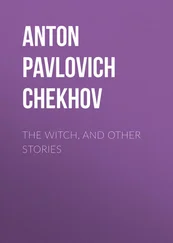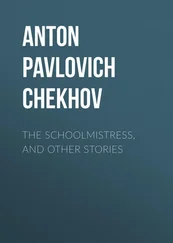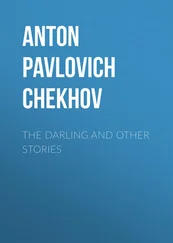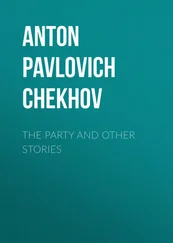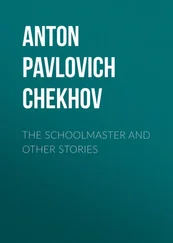Anton Chekhov - The Bishop and Other Stories
Здесь есть возможность читать онлайн «Anton Chekhov - The Bishop and Other Stories» весь текст электронной книги совершенно бесплатно (целиком полную версию без сокращений). В некоторых случаях можно слушать аудио, скачать через торрент в формате fb2 и присутствует краткое содержание. Жанр: Классическая проза, на английском языке. Описание произведения, (предисловие) а так же отзывы посетителей доступны на портале библиотеки ЛибКат.
- Название:The Bishop and Other Stories
- Автор:
- Жанр:
- Год:неизвестен
- ISBN:нет данных
- Рейтинг книги:3 / 5. Голосов: 1
-
Избранное:Добавить в избранное
- Отзывы:
-
Ваша оценка:
- 60
- 1
- 2
- 3
- 4
- 5
The Bishop and Other Stories: краткое содержание, описание и аннотация
Предлагаем к чтению аннотацию, описание, краткое содержание или предисловие (зависит от того, что написал сам автор книги «The Bishop and Other Stories»). Если вы не нашли необходимую информацию о книге — напишите в комментариях, мы постараемся отыскать её.
The Bishop and Other Stories — читать онлайн бесплатно полную книгу (весь текст) целиком
Ниже представлен текст книги, разбитый по страницам. Система сохранения места последней прочитанной страницы, позволяет с удобством читать онлайн бесплатно книгу «The Bishop and Other Stories», без необходимости каждый раз заново искать на чём Вы остановились. Поставьте закладку, и сможете в любой момент перейти на страницу, на которой закончили чтение.
Интервал:
Закладка:
The song ceased. Yegorushka sauntered back to the chaise, and to while away the time went again to the trickle of water.
And again there was the sound of the dreary song. It was the same long-legged peasant woman in the hamlet over the hill. Yegorushka's boredom came back again. He left the pipe and looked upwards. What he saw was so unexpected that he was a little frightened. Just above his head on one of the big clumsy stones stood a chubby little boy, wearing nothing but a shirt, with a prominent stomach and thin legs, the same boy who had been standing before by the peasant woman. He was gazing with open mouth and unblinking eyes at Yegorushka's crimson shirt and at the chaise, with a look of blank astonishment and even fear, as though he saw before him creatures of another world. The red colour of the shirt charmed and allured him. But the chaise and the men sleeping under it excited his curiosity; perhaps he had not noticed how the agreeable red colour and curiosity had attracted him down from the hamlet, and now probably he was surprised at his own boldness. For a long while Yegorushka stared at him, and he at Yegorushka. Both were silent and conscious of some awkwardness. After a long silence Yegorushka asked:
"What's your name?"
The stranger's cheeks puffed out more than ever; he pressed his back against the rock, opened his eyes wide, moved his lips, and answered in a husky bass: "Tit!"
The boys said not another word to each other; after a brief silence, still keeping his eyes fixed on Yegorushka, the mysterious Tit kicked up one leg, felt with his heel for a niche and clambered up the rock; from that point he ascended to the next rock, staggering backwards and looking intently at Yegorushka, as though afraid he might hit him from behind, and so made his way upwards till he disappeared altogether behind the crest of the hill.
After watching him out of sight, Yegorushka put his arms round his knees and leaned his head on them. . . . The burning sun scorched the back of his head, his neck, and his spine. The melancholy song died away, then floated again on the stagnant stifling air. The rivulet gurgled monotonously, the horses munched, and time dragged on endlessly, as though it, too, were stagnant and had come to a standstill. It seemed as though a hundred years had passed since the morning. Could it be that God's world, the chaise and the horses would come to a standstill in that air, and, like the hills, turn to stone and remain for ever in one spot? Yegorushka raised his head, and with smarting eyes looked before him; the lilac distance, which till then had been motionless, began heaving, and with the sky floated away into the distance. . . . It drew after it the brown grass, the sedge, and with extraordinary swiftness Yegorushka floated after the flying distance. Some force noiselessly drew him onwards, and the heat and the wearisome song flew after in pursuit. Yegorushka bent his head and shut his eyes. . . .
Deniska was the first to wake up. Something must have bitten him, for he jumped up, quickly scratched his shoulder and said:
"Plague take you, cursed idolater!"
Then he went to the brook, had a drink and slowly washed. His splashing and puffing roused Yegorushka from his lethargy. The boy looked at his wet face with drops of water and big freckles which made it look like marble, and asked:
"Shall we soon be going?"
Deniska looked at the height of the sun and answered:
"I expect so."
He dried himself with the tail of his shirt and, making a very serious face, hopped on one leg.
"I say, which of us will get to the sedge first?" he said.
Yegorushka was exhausted by the heat and drowsiness, but he raced off after him all the same. Deniska was in his twentieth year, was a coachman and going to be married, but he had not left off being a boy. He was very fond of flying kites, chasing pigeons, playing knuckle-bones, running races, and always took part in children's games and disputes. No sooner had his master turned his back or gone to sleep than Deniska would begin doing something such as hopping on one leg or throwing stones. It was hard for any grown-up person, seeing the genuine enthusiasm with which he frolicked about in the society of children, to resist saying, "What a baby!" Children, on the other hand, saw nothing strange in the invasion of their domain by the big coachman. "Let him play," they thought, "as long as he doesn't fight!" In the same way little dogs see nothing strange in it when a simple-hearted big dog joins their company uninvited and begins playing with them.
Deniska outstripped Yegorushka, and was evidently very much pleased at having done so. He winked at him, and to show that he could hop on one leg any distance, suggested to Yegorushka that he should hop with him along the road and from there, without resting, back to the chaise. Yegorushka declined this suggestion, for he was very much out of breath and exhausted.
All at once Deniska looked very grave, as he did not look even when Kuzmitchov gave him a scolding or threatened him with a stick; listening intently, he dropped quietly on one knee and an expression of sternness and alarm came into his face, such as one sees in people who hear heretical talk. He fixed his eyes on one spot, raised his hand curved into a hollow, and suddenly fell on his stomach on the ground and slapped the hollow of his hand down upon the grass.
"Caught!" he wheezed triumphantly, and, getting up, lifted a big grasshopper to Yegorushka's eyes.
The two boys stroked the grasshopper's broad green back with their fingers and touched his antenna, supposing that this would please the creature. Then Deniska caught a fat fly that had been sucking blood and offered it to the grasshopper. The latter moved his huge jaws, that were like the visor of a helmet, with the utmost unconcern, as though he had been long acquainted with Deniska, and bit off the fly's stomach. They let him go. With a flash of the pink lining of his wings, he flew down into the grass and at once began his churring notes again. They let the fly go, too. It preened its wings, and without its stomach flew off to the horses.
A loud sigh was heard from under the chaise. It was Kuzmitchov waking up. He quickly raised his head, looked uneasily into the distance, and from that look, which passed by Yegorushka and Deniska without sympathy or interest, it could be seen that his thought on awaking was of the wool and of Varlamov.
"Father Christopher, get up; it is time to start," he said anxiously. "Wake up; we've slept too long as it is! Deniska, put the horses in."
Father Christopher woke up with the same smile with which he had fallen asleep; his face looked creased and wrinkled from sleep, and seemed only half the size. After washing and dressing, he proceeded without haste to take out of his pocket a little greasy psalter; and standing with his face towards the east, began in a whisper repeating the psalms of the day and crossing himself.
"Father Christopher," said Kuzmitchov reproachfully, "it's time to start; the horses are ready, and here are you, . . . upon my word."
"In a minute, in a minute," muttered Father Christopher. "I must read the psalms. . . . I haven't read them to-day."
"The psalms can wait."
"Ivan Ivanitch, that is my rule every day. . . . I can't . . ."
"God will overlook it."
For a full quarter of an hour Father Christopher stood facing the east and moving his lips, while Kuzmitchov looked at him almost with hatred and impatiently shrugged his shoulders. He was particularly irritated when, after every "Hallelujah," Father Christopher drew a long breath, rapidly crossed himself and repeated three times, intentionally raising his voice so that the others might cross themselves, "Hallelujah, hallelujah, hallelujah! Glory be to Thee, O Lord!" At last he smiled, looked upwards at the sky, and, putting the psalter in his pocket, said:
Читать дальшеИнтервал:
Закладка:
Похожие книги на «The Bishop and Other Stories»
Представляем Вашему вниманию похожие книги на «The Bishop and Other Stories» списком для выбора. Мы отобрали схожую по названию и смыслу литературу в надежде предоставить читателям больше вариантов отыскать новые, интересные, ещё непрочитанные произведения.
Обсуждение, отзывы о книге «The Bishop and Other Stories» и просто собственные мнения читателей. Оставьте ваши комментарии, напишите, что Вы думаете о произведении, его смысле или главных героях. Укажите что конкретно понравилось, а что нет, и почему Вы так считаете.





